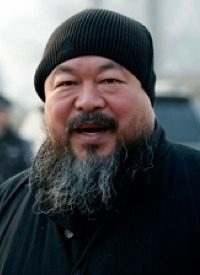
Among the most prominent to be abducted was Ai Weiwei, probably China’s best-known artist internationally. He had been embarrassing the regime for years, suffering brutal beatings at the hands of China’s communist overlords. But it was assumed that his fame would offer him some degree of protection. It didn’t.
On April 4, Chinese authorities picked him up at an airport as he was about to board a flight for Hong Kong. Then, he disappeared, with no official statement on his whereabouts or condition. His family wasn‘t even informed.
The regime claims Ai is guilty of “economic crimes,” but nearly everyone outside of China knows that’s not true. Now, he’s said to be “confessing” to the charges — almost certainly under torture.
One of Ai’s associates, freelance journalist Wen Tao, was abducted the same day. Nothing is known publicly about his fate so far. And Ai’s attorney, Liu Xiaoyuan, only re-appeared on April 19 after being detained by the regime last week. Liu told the U.K. Guardian that he did not want to give details about what had happened. Numerous other friends and associated of Ai have been detained, too.
And they’re not alone. Dozens — possibly hundreds — of high-profile critics, human-rights lawyers, and even bloggers have also been abducted by the communist “security” apparatus since February. Only a handful have been released so far, and all of those have refused to talk publicly about what they endured. At least some of the abductees have been sent to labor and “re-education” camps.
Certain analysts believe the crackdown is related to online calls for a Middle East-style “Jasmine Revolution” in China. Anonymous Web postings began appearing several months ago, but no large-scale protests emerged, especially since the regime sent out swarms of goons to each location.
Apparently the communist dictatorship is feeling nervous. But so are people close to the abductees. An unidentified person close to one of the lawyers who was abducted told Reuters that the situation was becoming “more and more terrifying.”
Human-rights groups have become increasingly vocal about the disappearances. And protests at the communist dictatorship’s embassies around the world have already started. Even Western governments and the United Nations have started to offer some tepid criticism about the abductions.
In a statement released earlier this month, the UN Working Group on Enforced or Involuntary Disappearances expressed “serious concern at the recent wave of enforced disappearances” in communist China, noting that such tactics were a crime. “There can never be an excuse to disappear people, especially when those persons are peacefully expressing their dissent,” the UN body said in a rare criticism of the communist regime.
Western governments have also offered some mild rebukes of the dictatorship. The foreign ministries of Germany and the U.K. have both expressed concern. Even U.S. Secretary of State Hillary Clinton, whose husband Bill is known to have provided some of America’s most sensitive military secrets to the communist regime during his time as President, said she was concerned. "As we have said repeatedly, the United States welcomes the rise of a strong and prosperous China," she told reporters earlier this month when presenting a human-rights report. "However, we remain deeply concerned about reports that since February, dozens of people including public-interest lawyers, writers, artists, intellectuals and activists have been arbitrarily detained and arrested."
Clinton said such detentions were “contrary to the rule of law,” urging the dictatorship to release everyone who was abducted for expressing their opinion. The State Department report she was presenting noted that numerous Chinese people, possibly tens of thousands, were improperly committed to psychiatric institutions because of dissent.
Numerous human-rights groups around the world have also condemned the communist regime’s disappearances. From the New York-based Human Rights Watch to the Hong Kong-based Chinese Human Rights Defenders, the atrocities are being roundly condemned by non-profit groups worldwide.
The International Bar Association even stepped up, with its Human Rights Institution issuing a warning about the regime in a statement. "An expanding catalogue of abductions by the Chinese authorities [is creating] a climate of fear,” it said. “The IBAHRI calls on the Chinese government to release all illegally detained human rights lawyers; cease all forms of harassment of the same; and to make a public statement on the whereabouts of 'disappeared' lawyers, the reasons for their arrest and their treatment in detention."
China, as is typical, chastised other countries and international observers for objecting to the abductions and disappearances. "We advise the U.S. side to reflect on its own human rights issues and don't position itself as a preacher of human rights, and to stop using the issue of human rights reports to interfere in other countries' internal affairs," Chinese Foreign Ministry spokesman Hong Lei said in a statement posted on the regime’s website.
As reported recently by The New American, human-rights activists are not the only ones suffering crack downs and brutality at the hands of the communist regime. Christians and the people of Tibet are being brutalized, arrested and “re-educated” too. Torture, labor camps, brainwashing, and outright murder are all tactics employed by the Chinese government in its zeal to retain absolute power.
What will happen to the multitude of abducted critics remains unclear. But so far, despite the outcry and intensifying international pressure, the communist dictatorship has only been clamping down even harder.
Photo of Ai Weiwei: AP Images
Related articles:



